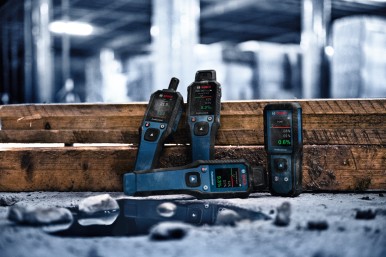A car with an online GPS knows the fastest route from A to B, the connected factory controls itself, the smart home helps save heating costs, thanks to communication with the home-owner’s smartphone. Everything is becoming an active part of the internet. Even now, billions of things around the world are beginning to exchange and share information online.
Whether connected mobility, connected industry, smart energy systems, or smart building technology, Bosch is systematically making its hardware part of the internet. In this endeavor, the company is benefiting from its diverse portfolio. For decades, Bosch has known how cars, boilers, and industrial machinery work. Step by step, the company is now making its products web-enabled and offering its customers new services.
Bosch is certain that the internet of things (IoT) will make people’s lives more convenient and secure, and businesses more efficient and eco-friendly. For this reason, the company is investing heavily in this potentially huge market and extending its expertise. This applies first and foremost to traditional areas of business: even though Bosch has been an automotive supplier for more than 130 years, connected mobility now offers new opportunities beyond the hood, such as car-sharing and multimodal traffic concepts. At the same time, new business models are presenting themselves “off the beaten track,” such as in smart homes or the cloud business.
Here, Bosch is pursuing a “3S” strategy: sensors, software, and services.
Sensors teach things how to feel, such as a parking space that indicates whether it is vacant or occupied. Bosch is the global market leader in the business with micromechanical sensors.
The huge volumes of data from these sensors can only be processed with the help of a structured software platform. The role of this “invisible hand” is played by the Bosch IoT Suite. In connected factories, for example, data mining makes proactive quality management possible. If the software recognizes signs of wear and tear in a production line at an early stage, spare parts can be made available before the machine breaks down.
Services – A significant part of the added value that comes from connectivity takes the form of services. In the age of connectivity, new and, above all, beneficial services are about much more than just the classic after-sales model. Instead, Bosch’s web-based services accompany and assist the company’s customers, also in their everyday lives. One such service is secure truck parking. Since early 2017, freight forwarders and truckers have been able to use this portal to reserve secure truck parking spaces along Germany’s freeways.
But to quickly increase the volume of sensors, software, and services on the IoT, there has to be a platform that brings all these aspects together. At Bosch, this key piece of the jigsaw puzzle takes the form of the company’s own IoT cloud. On the internet of things, this cloud is capable of much more than a private online memory. What makes the cloud so special is that it provides a wide spectrum of ready-to-use cloud services. It is designed in such a way that it can speed up IoT projects, reduce time to market for IoT solutions, and increase security. IoT projects thus become simpler and cost less. All this is done while respecting strict data privacy rules and the latest data-security knowledge.
Artificial intelligence saves time and money
The example of the cloud gives an indication of the progress that has already been made with connectivity. Thanks above all the learning algorithms and artificial neural networks (like human nervous systems, they help process the information that has been gathered), artificial intelligence will also play an important role in connectivity in the future. Is the “object” at the roadside a road sign, a cyclist, or a pedestrian? Like human beings, self-driving cars also first have to learn such things. Simulating intelligent behavior on the basis of predetermined or learned patterns is a key competence for structuring the connected world, and thus also relevant for Bosch. In January 2017, Bosch set up a center for artificial intelligence, thus adding a further important piece of the puzzle in its connectivity strategy.
Additional information is available online at iot.bosch.com




